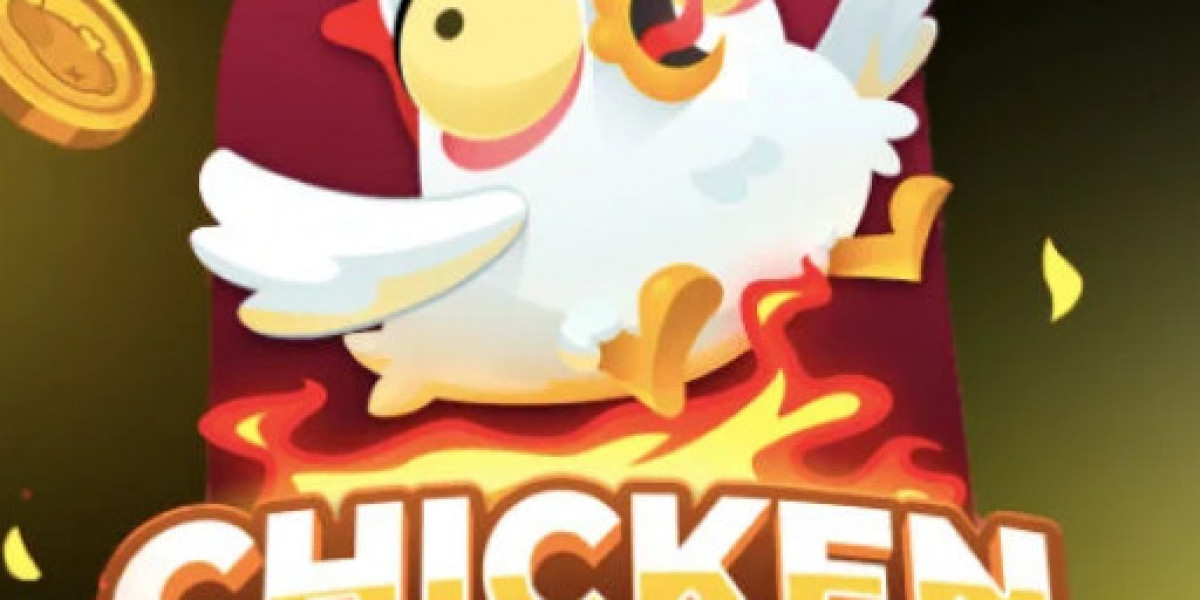Chicken Road: A High-Stakes Gamble in the Casino of Life
The allure of the casino is a powerful force, a siren song promising riches and excitement, but often delivering heartbreak and loss. Within its glittering walls, games of chance hold sway, each offering a unique blend of skill, strategy, and sheer luck. While familiar games like poker, blackjack, and roulette dominate the spotlight, there exist lesser-known, yet equally compelling, contests of nerve and decision-making. One such game, metaphorical rather than literal, is the "Chicken Road," a high-stakes gamble that plays out not just within the casino's confines, but also in the realms of business, personal relationships, and even geopolitical strategy. This article will delve into the concept of Chicken Road, exploring its origins, its strategic nuances, and its profound implications for decision-making under pressure.
What is Chicken Road?
The term "Chicken Road," also known as "Chicken," stems from a dangerous and reckless game popularized in mid-20th century Americana, often depicted in films like "Rebel Without a Cause." The premise is simple, yet terrifying: two drivers speed directly towards each other on a collision course. The first driver to swerve away, demonstrating a lack of nerve, is labeled the "chicken," while the other driver is declared the winner, though the victory comes perilously close to disaster.
This seemingly absurd game serves as a potent metaphor for situations in which two opposing parties engage in a confrontation, each unwilling to back down, even when the potential consequences are devastating for both. In the context of the casino, Chicken Road manifests not as a physical game, but as a mindset, a strategy employed in various games and financial decisions, where players push their luck to the absolute limit, betting everything on their perceived superior nerve or strategic insight.
Consider a high-stakes poker game. Two players are locked in a relentless battle of wits, each raising the stakes with audacious bluffs and calculated bets. Neither is willing to yield, even as the pot swells to a monumental size. This scenario mirrors the Chicken Road, where both players are driving head-on towards potential financial ruin, each convinced that the other will ultimately flinch. The winner, in this case, is not necessarily the one with the best hand, but the one with the strongest nerves and the most convincing poker face, the one who can successfully intimidate their opponent into folding.
Applying Chicken Road to Casino Games
The principles of Chicken Road can be applied, consciously or unconsciously, to a variety of casino games. Let's examine a few examples:
Poker: The Ultimate Test of Nerve
Poker, particularly No-Limit Hold'em, is perhaps the most fertile ground for Chicken Road tactics. The ability to bluff effectively, to represent a strong hand even when holding nothing, is crucial for success. Players who are willing to push their opponents to the brink, betting aggressively and raising relentlessly, can often force them to fold even when holding a superior hand. This strategy, however, is fraught with risk. A misread, a tell given away, or an opponent with even stronger nerves can lead to catastrophic losses. The Chicken Road in poker is a delicate dance between aggression and calculation, a constant assessment of risk and reward.
| Poker Hand | Likelihood of Winning (Heads Up) | Chicken Road Application |
|---|---|---|
| Pocket Aces (AA) | ~85% | Still vulnerable to bluffs, overconfidence can be exploited. |
| King-Queen Suited (KQ) | ~60% | Strong hand, but requires aggressive play to maximize value. |
| 7-2 Offsuit | ~15% | Typically folded, but can be used as a bluffing hand in certain situations. |
Blackjack: Doubling Down on Risk
Blackjack, while seemingly more straightforward than poker, also offers opportunities for Chicken Road strategies. The decision to "double down" – doubling your initial bet in exchange for receiving only one more card – is a classic example. This move is typically employed when the player holds a strong starting hand, such as an 11, and the dealer shows a weak upcard, such as a 5 or 6. Doubling down maximizes the potential profit, but also increases the risk. If the player receives a low card, they are stuck with a weak hand and a doubled bet. This decision reflects the Chicken Road mentality: pushing your advantage to the extreme, even at the risk of a significant setback.
Roulette: The Martingale System and its Perils
The Martingale system, a popular betting strategy in roulette, embodies the Chicken Road philosophy. This system involves doubling your bet after every loss, with the belief that eventually, you will win and recoup all your previous losses, plus a small profit. While seemingly foolproof in theory, the Martingale system quickly becomes unsustainable in practice. As losses mount, the required bets escalate exponentially, eventually exceeding the table limit or depleting the player's bankroll. This relentless pursuit of recouping losses, pushing further and further down the Chicken Road, often leads to devastating financial consequences.
| Roulette Bet | Probability of Winning | Martingale Application (Example) |
|---|---|---|
| Red/Black | 48.6% (European Roulette) | Bet $1, lose. Bet $2, lose. Bet $4, lose. Bet $8, lose. Bet $16, lose. (Requires deep pockets) |
| Straight Up (Single Number) | 2.7% (European Roulette) | Martingale is even more risky, requiring significantly more capital. |
The Psychology of Chicken Road
The allure of Chicken Road stems from several psychological factors:
Ego and Pride: The fear of being perceived as weak or cowardly can drive individuals to take unnecessary risks, pushing them further down the Chicken Road. Backing down is seen as an admission of defeat, a blow to one's self-esteem.
Loss Aversion: The pain of losing is often felt more acutely than the pleasure of winning. This can lead individuals to engage in risky behavior in an attempt to avoid losses, even when the odds are stacked against them.
Overconfidence: A belief in one's own superior skills or judgment can lead to an underestimation of risk and an overestimation of one's chances of success. This can result in reckless decisions and a willingness to push the limits beyond what is prudent.
The Gambler's Fallacy: The mistaken belief that past events influence future outcomes, particularly in games of chance. For example, believing that after a series of losses, a win is "due," leading to increased betting.
The Dangers of Chicken Road
While the Chicken Road can occasionally lead to short-term gains, its long-term consequences are often disastrous. The relentless pursuit of victory, regardless of the cost, can lead to:
Financial Ruin: The escalating bets and risky decisions inherent in Chicken Road strategies can quickly deplete a player's bankroll, leaving them with nothing.
Emotional Distress: The stress and anxiety associated with high-stakes gambling can take a toll on a player's mental and emotional well-being, leading to depression, anxiety, and other mental health issues.
Addiction: The thrill of the gamble and the desire to recoup losses can lead to compulsive gambling behavior, resulting in addiction and further financial and personal problems.
Relationship Problems: Gambling addiction and financial instability can strain relationships with family and friends, leading to conflict, isolation, and even divorce.
Avoiding the Chicken Road: A Path to Responsible Gambling
The key to avoiding the pitfalls of Chicken Road is to cultivate a mindset of responsible gambling:
Set Limits: Before entering the casino, establish clear limits on how much time and money you are willing to spend. Stick to these limits, regardless of whether you are winning or losing.
Manage Your Emotions: Recognize and manage your emotions while gambling. Avoid making impulsive decisions based on fear, greed, or anger.
Understand the Odds: Be aware of the odds and probabilities associated with each game. Don't fall prey to the gambler's fallacy or other cognitive biases.
Know When to Quit: Recognize when you are on a losing streak and be willing to walk away. Don't chase your losses or try to win back what you have lost.
Seek Help if Needed: If you suspect that you have a gambling problem, seek help from a qualified professional. There are many resources available to help individuals overcome gambling addiction.
Chicken Road Beyond the Casino
The concept of Chicken Road extends far beyond the casino walls. It applies to any situation where two parties are engaged in a high-stakes confrontation, each unwilling to back down, even when the potential consequences are devastating.
Business Negotiations: In business negotiations, two companies may engage in a Chicken Road, each demanding concessions from the other, even at the risk of scuttling the deal entirely.
Political Standoffs: In political negotiations, countries may engage in a Chicken Road, each threatening to take drastic action if their demands are not met, even at the risk of war.
Personal Relationships: In personal relationships, two individuals may engage in a Chicken Road, each refusing to apologize or compromise, even at the risk of ending the relationship.
In all these situations, the key to avoiding the pitfalls of Chicken Road is to prioritize rational decision-making, to carefully weigh the potential risks and rewards, and to be willing to compromise or back down when necessary.
Conclusion: The Wisdom of Prudence
The Chicken Road, whether played in the casino or in the broader arena of life, is a perilous game with potentially devastating consequences. While the allure of victory may be strong, the risks far outweigh the rewards. Cultivating a mindset of prudence, rationality, and responsible decision-making is essential for navigating the challenges of life and avoiding the pitfalls of Chicken Road. By understanding the psychology of risk-taking, setting limits, and knowing when to walk away, we can protect ourselves from the financial, emotional, and personal costs of this high-stakes gamble. The true victory lies not in pushing the limits to the brink of disaster, but in making wise and informed choices that lead to long-term well-being and success.







